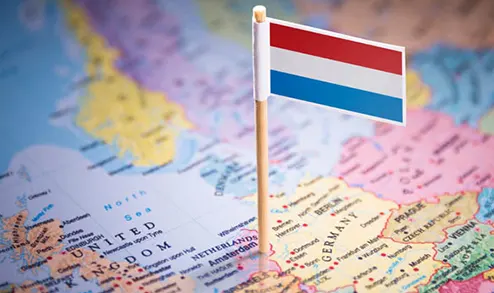 In 2022, Betent and Play North faced scrutiny over not adhering to the rules outlined in the country’s Money Laundering and Terrorism Financing Prevention Act (Wwft). As revealed by the Netherlands Gambling Authority, or the Kansspelautoriteit (KSA) in Dutch, the problems concern the operators’ failure to control player behavior, along with violations of the country’s anti-money laundering regulations (AML) and the legislation surrounding counter-terrorism financing (CTF).
In 2022, Betent and Play North faced scrutiny over not adhering to the rules outlined in the country’s Money Laundering and Terrorism Financing Prevention Act (Wwft). As revealed by the Netherlands Gambling Authority, or the Kansspelautoriteit (KSA) in Dutch, the problems concern the operators’ failure to control player behavior, along with violations of the country’s anti-money laundering regulations (AML) and the legislation surrounding counter-terrorism financing (CTF).
Specific instances involved the loss of significant funds by customers, which should have been prevented via intervention by the operators. In some cases, users were able to incur losses exceeding €50,000 per month.
The KSA cited the lack of investigation of users who have deposited and lost large sums of money as another violation, specifically relating to the source of the given individuals’ money. Betent and Play North, therefore, did not comply with AML rules. It was also revealed that when asked to provide details regarding the matter, the gambling companies had failed to provide sufficient information.
The KSA’s Reasoning For Going Public With the Information
Although the violations were committed in 2022, the KSA gave several reasons for its decision to make both companies’ breaches public. The first one has to do with improving player awareness of the KSA’s duties. In addition, the situation will also serve as an example of what happens when the rules are not followed to the letter. This can discourage other gambling operators in the Netherlands’ gambling market from neglecting their duties or partaking in unlawful actions.
The KSA also considered informing the masses of the situation to be appropriate due to the fact that the regulator’s decision is now immutable. Both Betent and Play North had attempted to object to the Kansspelautoriteit’s ruling prior to the reveal, but were unsuccessful.
It is worth noting that the situation of Betent and Play North marks the first time the Kansspelautoriteit has revealed information pertaining to specific cases of operators’ regulatory breaches to the masses.
Gambling Legislation in the Netherlands
Established in 2012, the Kansspelautoriteit serves as the entity responsible for regulating gambling operations in the Netherlands. All companies seeking to offer their gambling services to Dutch customers must be authorized by the KSA. Licenses have a validity period of up to five years, although a given license can be revoked when deemed necessary.
The Dutch gambling sector is rich in terms of variety thanks to the fact that over 20 companies have been granted licenses to operate in the country. The rules imposed on licensees also ensure a safe environment for both gamblers and those who wish to avoid partaking in wagering.
Updates to gambling legislation have been introduced as well, with recent changes relating to ad campaigns coming into effect this July. The new regulations stipulate that licensees are not permitted to advertise in public spaces and buildings (including gambling venues). Online advertising is allowed, but only when it is possible for the ads to be targeted strictly toward Dutch individuals 24 or older. An opt-out option must be provided as well.
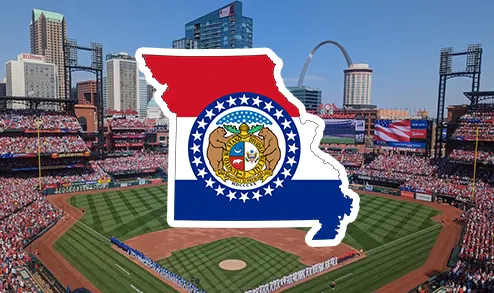 As the situation of Missouri’s sports betting legislation remains in stasis after multiple failures of the Missouri Senate to address the matter in a State vote, a coalition of six Missouri sports teams proposed four petition initiatives in an effort to make remote and land-based sports betting legal.
As the situation of Missouri’s sports betting legislation remains in stasis after multiple failures of the Missouri Senate to address the matter in a State vote, a coalition of six Missouri sports teams proposed four petition initiatives in an effort to make remote and land-based sports betting legal.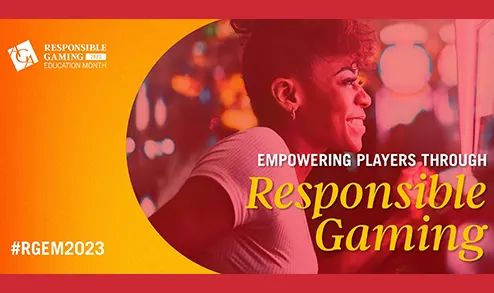 On September 5th, the American Gaming Association (AGA) released survey data on responsible gambling awareness among American individuals who partake in gambling activities. The results indicate that the vast majority of gamblers are informed about the existence and benefits of responsible gambling tools.
On September 5th, the American Gaming Association (AGA) released survey data on responsible gambling awareness among American individuals who partake in gambling activities. The results indicate that the vast majority of gamblers are informed about the existence and benefits of responsible gambling tools. 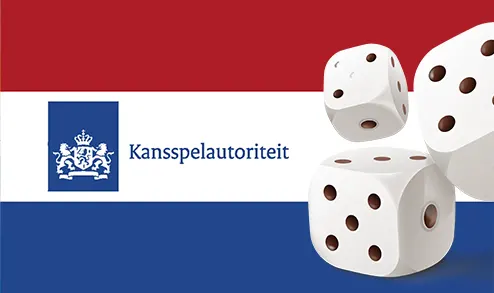 KSA, the Dutch gambling regulator, has recently insisted upon strengthening legislative and regulatory measures relating to online gambling platforms operating within the country. The associated improvements concerning responsible gambling policies, programs, and tools are to be implemented at the earliest opportunity, as the regulator requires.
KSA, the Dutch gambling regulator, has recently insisted upon strengthening legislative and regulatory measures relating to online gambling platforms operating within the country. The associated improvements concerning responsible gambling policies, programs, and tools are to be implemented at the earliest opportunity, as the regulator requires. The newly appointed Minister of Communication and Information of Indonesia, Budi Arie Setiadi has said that 42,622 interactive gambling platforms ceased operations since he assumed the post on July 17, 2023. During a press conference in Jakarta held on August 8, 2023, he stated that the anti-gambling measures will target all individuals involved in participating, organizing, sponsoring, and promoting gambling.
The newly appointed Minister of Communication and Information of Indonesia, Budi Arie Setiadi has said that 42,622 interactive gambling platforms ceased operations since he assumed the post on July 17, 2023. During a press conference in Jakarta held on August 8, 2023, he stated that the anti-gambling measures will target all individuals involved in participating, organizing, sponsoring, and promoting gambling.  Following the United States Supreme Court’s ruling on May 14, 2018, all states were allowed to legalize sports betting, as per their judgment. Before this, the Professional and Amateur Sports Provision Act 1992 (PASPA) made any form of operating, advertising, promoting, or licensing sports wagering activities illegal. From that point forward, the sports betting industry has experienced explosive growth, with revenue from the online sports betting market expected to reach $7.62 billion by the end of 2023.
Following the United States Supreme Court’s ruling on May 14, 2018, all states were allowed to legalize sports betting, as per their judgment. Before this, the Professional and Amateur Sports Provision Act 1992 (PASPA) made any form of operating, advertising, promoting, or licensing sports wagering activities illegal. From that point forward, the sports betting industry has experienced explosive growth, with revenue from the online sports betting market expected to reach $7.62 billion by the end of 2023.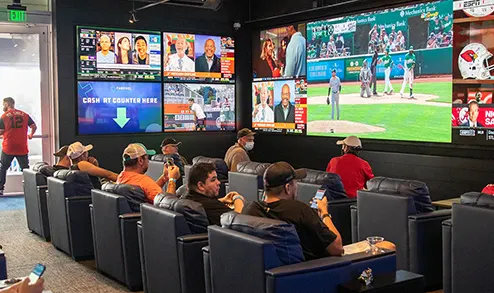 It has been two years since the sun-drenched Grand Canyon State legalized sports betting. Following Governor Doug Ducey’s signing of bill HB 2772 into law in April 2021, the popular form of entertainment became legal in Arizona in September 2021. The industry flourished at a hectic pace with more than $7.1 billion worth of bets placed during the first year of legal sports wagering within the state. This figure has now risen to $11 billion marking the second anniversary of the sector in Arizona.
It has been two years since the sun-drenched Grand Canyon State legalized sports betting. Following Governor Doug Ducey’s signing of bill HB 2772 into law in April 2021, the popular form of entertainment became legal in Arizona in September 2021. The industry flourished at a hectic pace with more than $7.1 billion worth of bets placed during the first year of legal sports wagering within the state. This figure has now risen to $11 billion marking the second anniversary of the sector in Arizona. 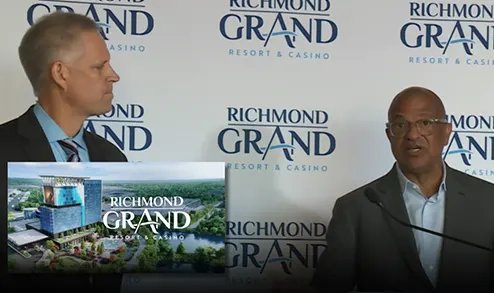 Last week, Richmond city officials examined the joint project of Churchill Downs, Inc. and Urban One for the redesign of Richmond Grand Resort and Casino. They familiarized themselves with the plans in detail and did not hide their enthusiasm about a socially responsible cause they were about to unveil. The forthcoming referendum on November 7, 2023, will show if the local citizens will approve or reject the $561 million casino proposal.
Last week, Richmond city officials examined the joint project of Churchill Downs, Inc. and Urban One for the redesign of Richmond Grand Resort and Casino. They familiarized themselves with the plans in detail and did not hide their enthusiasm about a socially responsible cause they were about to unveil. The forthcoming referendum on November 7, 2023, will show if the local citizens will approve or reject the $561 million casino proposal.  Casual backyard volleyball tournaments throughout Milford have been used to disguise illegal gambling activities, according to local law enforcement. As a result, police officers arrested two individuals with connection to the “backyard casino” scheme, as they call it. Law enforcement authorities believe that other gambling activities operate under the same disguise in town.
Casual backyard volleyball tournaments throughout Milford have been used to disguise illegal gambling activities, according to local law enforcement. As a result, police officers arrested two individuals with connection to the “backyard casino” scheme, as they call it. Law enforcement authorities believe that other gambling activities operate under the same disguise in town. 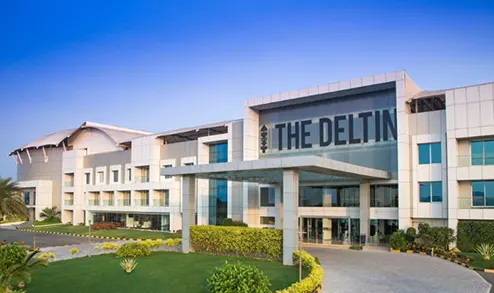 On September 8, a writ petition filed by a Delta Corp entity is to appear before the Bombay High Court for a final hearing. The Delta group hopes to receive a casino license from the Daman and Diu administration under Section 13A of the Goa, Daman, and Diu Public Gambling Act, 1976. Delta Corp is the sole listed casino in the country.
On September 8, a writ petition filed by a Delta Corp entity is to appear before the Bombay High Court for a final hearing. The Delta group hopes to receive a casino license from the Daman and Diu administration under Section 13A of the Goa, Daman, and Diu Public Gambling Act, 1976. Delta Corp is the sole listed casino in the country.